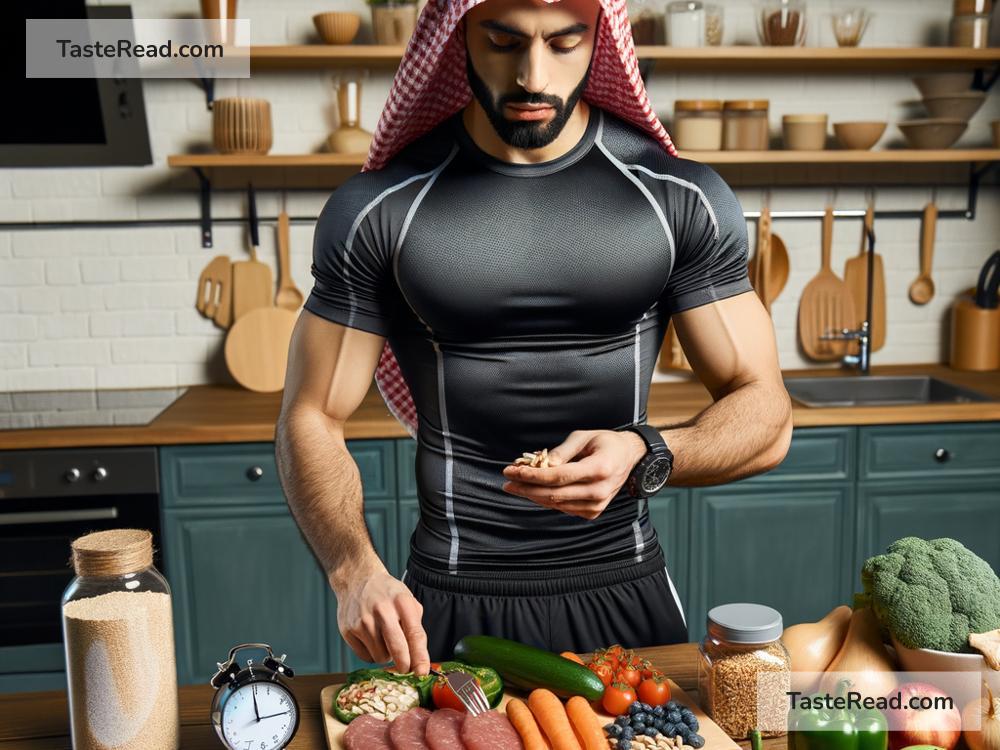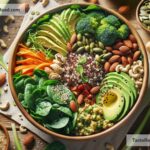How to Optimize Meal Timing for Athletic Performance
When it comes to performing your best in sports or fitness, what you eat matters a lot—but when you eat can be just as important. Proper meal timing can help you build muscle, recover faster, have more energy during workouts, and feel good throughout the day. The good news is, optimizing meal timing doesn’t need to be complicated. In this blog, we’ll explain how to time your meals to maximize athletic performance in simple and easy terms.
Why Does Meal Timing Matter?
Imagine your body like a car. Just like a car needs gas to run, your body needs food for fuel. Eating the right type of food at the right time ensures your muscles have energy for training, keeps your brain sharp during competition, and helps your body recover after exercise. If you skip meals or eat too close to a workout, you might feel tired, have stomach problems, or struggle to hit your performance goals.
Meal Timing Basics for Athletes
Here’s a breakdown of when and what types of meals are best for athletes:
1. Pre-Workout Nutrition: Fuel Up Before You Exercise
Eating before a workout gives you the energy to perform your best. Your pre-workout snack or meal should focus on carbohydrates (your body’s main source of energy) and a little bit of protein. Avoid fatty or greasy foods, as they can slow digestion and make you feel sluggish.
- When to eat: Ideally, eat a meal 2-3 hours before exercising. If your workout is early in the morning or you don’t have much time, a small snack 30-60 minutes before is also helpful.
- What to eat:
- 2-3 hours before: Grilled chicken with rice and steamed veggies, or a turkey sandwich on whole-grain bread.
- 30-60 minutes before: A banana, a small bowl of yogurt, or an energy bar.
2. During Your Workout: Quick Energy for Long Sessions
If your workout lasts longer than 60 minutes or is very intense, you might need to refuel during exercise. Simple carbohydrates, like glucose or sugar, can prevent fatigue and keep your performance strong. Sports drinks or energy gels work well because they’re easy to digest.
- When to eat: Every 30-45 minutes during long or intense sessions.
- What to eat: Sports drinks, gels, or small snacks like a handful of dried fruit.
3. Post-Workout Nutrition: Recover and Rebuild
After exercising, your body is like a sponge—it’s ready to absorb nutrients to recover. This is the most important meal for athletes because it helps repair muscle damage, replenishes energy stores, and prepares you for your next workout.
- When to eat: Within 30 minutes to 2 hours after exercising.
- What to eat: Focus on protein to rebuild muscles and carbohydrates to restore energy. Examples include a smoothie with whey protein and fruit, chicken stir-fry with rice, or eggs with whole-grain toast.
4. Daily Meals: Fuel for the Whole Day
Even if you’re not working out, your body needs consistent energy to stay healthy and strong. Eating balanced meals throughout the day can help maintain energy levels, reduce hunger, and prevent overeating later.
- When to eat: Aim for 3 main meals and 1-2 snacks spaced evenly throughout the day.
- What to eat: A mix of lean proteins, whole grains, healthy fats, and colorful fruits and vegetables.
Tips for Fine-Tuning Your Meal Timing
Every athlete is different, so what works for one person might not work for someone else. Here are some tips for adjusting your meal timing based on your needs:
-
Listen to Your Body: Pay attention to how you feel after eating. If a big meal makes you feel heavy during a workout, try eating a smaller portion or spacing out snacks instead.
-
Stay Consistent: Try to eat at similar times each day. Your body performs best when it knows when to expect food.
-
Stay Hydrated: Don’t forget about water! Drinking enough water before, during, and after your workout is just as important as food timing.
-
Experiment: Everyone is unique—so experiment with meal timing to find what works best for your schedule and athletic goals.
Common Mistakes to Avoid
- Skipping Meals: If you skip meals, your energy levels can crash, and your workouts will suffer.
- Eating Too Much Before Exercising: Large meals right before workouts can cause bloating or stomach discomfort.
- Waiting Too Long to Eat After Workouts: Delaying your post-workout meal means slower recovery for your muscles.
- Ignoring Hydration: Even if your meal timing is perfect, dehydration can hurt your performance.
The Bottom Line
Optimizing your meal timing can make a big difference in your athletic performance. By eating the right foods at the right times—before, during, and after your workouts—you’ll have more energy, recover faster, and feel better overall. Remember, consistency is key, and don’t be afraid to listen to your body and adjust your routine.
Whether you’re training for a marathon, lifting weights, or playing team sports, timing your meals can help you take your athletic performance to the next level. So, fuel smart, and enjoy crushing your goals!


